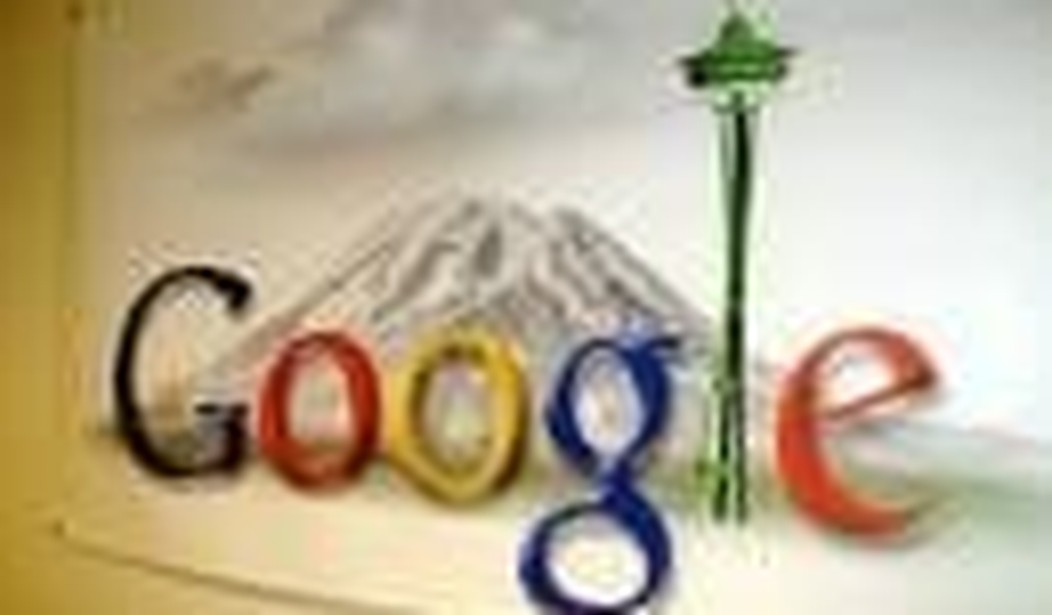No group has done more whining about the threat posed by Google than journalists — but this mass hysteria by the mass media is hard to understand. After all, what do search engines have to do with news, and how could Google possibly use technology to take it over? What, exactly, is the press afraid of?
We have already seen three phases of “Press-teria” about Google. Phase I was triggered three years ago by a journalist-produced video called “EPIC 2014” with a plot line worthy of a Grade B monster movie. It tried to make us rue that day in the future when we might dismiss the talents of journalists and allow all-powerful search engine technology to learn everything about us, then assemble unreliable flotsam and jetsam from the web into stories that pander to our prejudices. Unless you believe that good writing requires no human judgment or, for that matter, that humans have no human judgment, this scare tactic falls flat.
In Phase II, online newspapers accused Google News of stealing their work simply by using their words in brief synopses that accompanied links to their online news sites. Belgian newspapers sued Google for copyright infringement, so Google stopped referencing their stories, leading to an estimated 25 percent plunge in the online papers’ traffic. The newspapers relented. In America, the whining did not stop until newspapers allowed their jointly-owned Associated Press to accept a negligible fee in exchange for these synopses. But at the same time, Google News dropped links to similar articles from the AP members’ online papers. There is no word on whether or not they experienced the same plunge in traffic as the Belgian online papers.
Last week we seem to have entered Phase III, when news outlets will simply rage against the machine. News Corp’s Anne Spackman said Google was “hugely dangerous,” particularly because even small changes Google makes to their search algorithms can significantly alter news outlets’ search rankings.
The fact that these three phases of complaints have nothing in common should make us suspect that the press has an underlying problem that has nothing to do with Google at all. In fact, Google has never shown any real seriousness about being a player in news. Their Google News site is nothing more than a dumb, machine-driven aggregator of news from other sites, and mostly features the same AP, center-left, one-size-fits-all news stories that consumers increasingly are rejecting. And, unlike the #1 news site, Yahoo! News, it makes almost no use of human editors.
The real problem is that the press is deathly afraid they might lose their power to control the national conversation — and they are mortified they might lose it to private sector firms like Google that place top priority on profit and are indifferent to modern journalism dogma. While newspapers have always been part of the profit-driven private sector, they stopped identifying with it decades ago. When modern journalism was founded by Walter Lippmann, he declared that henceforth journalists would be viewed as scientists who generated objective truths, with a duty to jealously guard these truths from contamination by anyone who is not a journalist. Journalists today take this to mean they have a duty to fight-off any business pressures from their employers, financial markets, and would be corporate competitors. Their argument is represented today in a misleadingly-named “media reform” movement, for which PBS’ Bill Moyers serves as its Jesse Jackson. He tours the country giving fiery speeches about media conglomerates swallowing-up smaller outlets, warning us that “Big Media is ravenous. It never gets enough, always wants more. And it will stop at nothing to get it. These conglomerates are an empire, and they are imperial.” He rails against “a thoroughly commercialized environment, a media plantation…dominated by…corporate and ideological forces,” mentioning Google by name.
In Moyers’ America, government is the hero, with government-controlled PBS and NPR among the very few “independent sources of information” that have survived. He calls upon the FCC to impose even greater regulations on corporate activities and free speech. But Moyers’ America could not be more different from Thomas Jefferson’s America, in which government, not business, was seen as the villainous empire that always wanted more, requiring a Press that served as a “fence” to protect the public from encroachment on their individual rights.
What modern journalism does not yet understand is that the news media, like the government, derives its power from the people. Until they pay more attention to what their audiences want, they will continue to create opportunities for other private sector firms to snatch away their audiences, their revenues, and their power. As the Internet ushers in a new, people-driven news age, the biggest threat to the power of the media is not Google. It is us.
Steve Boriss blogs at The Future of News. He is employed by Washington University in St. Louis, where he is Associate Director of the Center for the Application of Information Technology (CAIT) and teaches a class called “The Future of News.” He holds an M.B.A. from the University of Michigan.









Join the conversation as a VIP Member